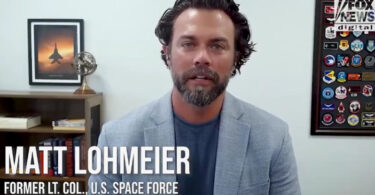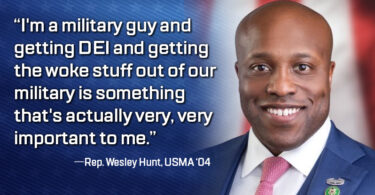‘Shocked, shocked I am.’
By David Propper | New York Post
Diversity, Equity and Inclusion programs popular in corporate America and at US colleges that are meant to tackle discrimination might instead actually foment hostility and racial tensions, according to a new study.
Research by the Network Contagion Research Institute (NCRI) and Rutgers University’s Social Perception Lab found that certain DEI practices pushed on participants led some of them to become irrationally confrontational and antagonistic.
“The evidence presented in these studies reveals that while purporting to combat bias, some anti-oppressive DEI narratives can engender:
- a hostile attribution bias
- heighten racial suspicion
- prejudicial attitudes
- authoritarian policing
- support for punitive behaviors in the absence of evidence for a transgression deserving punishment,”
the study released Monday argues.
Study co-author and NCRI Chief Science Officer Joel Finkelstein told Fox News researchers took ideas that are prominent in DEI lectures and training, and explored how exposing people to that ideology would affect them.
Texts from controversial anti-racist authors Ibram X. Kendi and Robin DiAngelo were included in the study, including themes that claim white supremacy and racism are a norm rather than the exception.
Participants that read the anti-racist material developed a “hostile attribution bias” and were more likely to believe in punitive measures for offenders of so-called microaggressions even without evidence, according to the study.
“And when people are supposed to see anti-racist material in the ideology, it looks like what happens is that they become more likely to punish for any evidence of wrongdoing,” Finkelstein told the outlet.
“That includes protesting people, calling for dismissal, demanding public apologies, receiving people calling for their relocation.
These punitive measures are, in some cases, costing people their jobs.”
The NCRI also found that anti-Islamophobia material that comes from a Muslim advocacy group may cause individuals to believe Muslim people are being treated unfairly even if there is no proof of that.
“DEI narratives that focus heavily on victimization and systemic oppression can foster unwarranted distrust and suspicions of institutions and alter subjective assessments of events,” the study claims.
About 52% of American workers are saddled with DEI meetings or training at work, according to a 2023 study from the Pew Research Center. . . . (read more)
Report: INSTRUCTING ANIMOSITY: HOW DEI PEDAGOGY PRODUCES THE HOSTILE ATTRIBUTION BIAS (pdf)
New study finds DEI initiatives creating ‘hostile attribution bias’ (Fox News, 25 Nov 24)
Using materials from within the DEI movement, the study measured ‘explicit bias’
New research from the Network Contagion Research Institute (NCRI) and Rutgers University reveals that some diversity, equity, and inclusion (DEI) training methods may cause psychological harm.
The study, released on Monday, shows significant increases in hostility and punitive attitudes among participants exposed to DEI pedagogy covering subjects like race, religion and caste.
This hostile attribution bias may contribute to increased intergroup hostility and authoritarian behavior in the long run, according to study co-author and NCRI Chief Science Officer Joel Finkelstein.
“What we did was we took a lot of these ideas that were found to still be very prominent in a lot of these DEI lectures and interventions and training,” said Finkelstein in an interview with Fox News Digital.
“And we said, ‘Well, how is this going to affect people?’ What we found is that when people are exposed to this ideology, what happens is they become hostile without any indication that anything racist has happened.”
A Pew Research Center study from 2023 found that 52% of American workers have DEI training events or meetings at work and, according to Professor Iris Bohnet with the Harvard Kennedy School, $8 billion is spent annually on such programs.
As DEI programs have become a major area of investment in recent years, their actual effectiveness remains a topic of debate, with NCRI’s study suggesting they may exacerbate tensions rather than alleviate them. The study measured “explicit bias, social distancing, demonization, and authoritarian tendencies” with both the DEI materials and control materials.
Their study included sharing anti-racist DEI materials from thought leaders like Ibram X. Kendi and “White Fragility” author Robin DiAngelo with participants involved. Specifically, the NCRI focused on materials which emphasized awareness of and opposition to “systemic oppression,” popularized by texts such as Kendi’s “How to Be an Antiracist.”
Those exposed to anti-racist materials were linked to heightened perceptions of racial bias in the study. Participants were also more likely to support punitive measures against perceived offenders of so-called “microaggressions,” even in the absence of evidence.
“And when people are supposed to see anti-racist material in the ideology, it looks like what happens is that they become more likely to punish for any evidence of wrongdoing,” said Finkelstein. “That includes protesting people, calling for dismissal, demanding public apologies, receiving people calling for their relocation. These punitive measures are, in some cases, costing people their jobs.”
One key takeaway from Finkelstein in the NCRI study is that the authoritarianism that comes from hostile attribution bias looks different in the 21st century.
According to Finkelstein, those who are likely to carry hostilities are “people who are higher in what’s called left-wing authoritarianism. This is now a steady phenomenon. We the people have been studying right-wing authoritarianism since World War II. It’s really only in the past 10 or 15 years that people have started saying, ‘Wait a minute, this is on the left, too.”
Across all groupings, instead of DEI materials reducing bias, the study discovered they engendered a hostile attribution bias amplifying perceptions of prejudicial hostility where none was present. . . . (read all)
Must-watch: Am I Racist? documentary by Matt Walsh








Leave a Comment